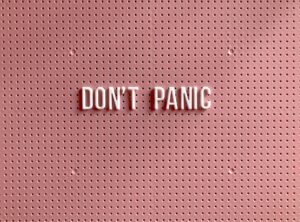At some time or another, anyone can struggle to push themselves through an unwanted or difficult assignment or task. However, people with mental health issues, such as anxiety, depression, and ADHD, are far more likely to struggle with procrastination than someone without these issues. Research has shown that procrastination is both a cause and a result of stress, particularly for those with a mental health diagnosis of ADHD, anxiety, or depression.
Procrastination and ADHD
Procrastination and ADHD are often linked together. People with ADHD are more likely to procrastinate than those without ADHD. There are a few reasons for this.
Distractibility
People with ADHD are easily distracted, making it difficult to stay focused on a task. This can lead to procrastination, as people with ADHD may find it hard to get started on a task or to stay on track once they start.
Impulsivity
People with ADHD are often impulsive, which can lead to them making decisions without thinking about the consequences. This can also lead to procrastination, as people with ADHD may be more likely to put off tasks until the last minute.
 Low frustration tolerance
Low frustration tolerance
People with ADHD often have low frustration tolerance, which can make it difficult to stick with a task that is challenging or boring. This can also lead to procrastination, as people with ADHD may be more likely to give up on a task before they finish it.
If someone has ADHD, there are some skills they can build to overcome procrastination. For example, breaking down tasks into smaller steps can make tasks seem less daunting and more manageable. Likewise, setting deadlines can help a person to stay on track and avoid procrastination.
Other tips include finding a quiet place to work helps focus and avoids distractions and taking breaks to stay refreshed and avoid burnout. Importantly, one can ask another for help and accountability to stay motivated and on track.
If someone is struggling with procrastination, talking to a doctor or therapist is essential. Professionals identify the root causes of procrastination and develop strategies for overcoming it.
Procrastination’s relationship to anxiety
If a task is difficult or unpleasant, it may be easy to put it off. This can lead to anxiety, which in turn makes a person likely to procrastinate. Often the buildup of anxiety can make the task larger than it actually is, and it is not as overwhelming as imagined.
Sometimes procrastination is rooted in fear, such as when essential medical tests are delayed because we are afraid of a diagnosis. The more anxiety we experience about a task, the more likely we will put it off until later. Social anxiety can also play a role in procrastination. The fear of being judged or embarrassed can cause someone to put off scheduling meetings or completing projects.
 A tendency toward perfectionism and information overload can also contribute to anxiety and procrastination. Perfectionism can lead to procrastination because of a fear of not doing something perfectly. Information overload can make it difficult to focus and start a task.
A tendency toward perfectionism and information overload can also contribute to anxiety and procrastination. Perfectionism can lead to procrastination because of a fear of not doing something perfectly. Information overload can make it difficult to focus and start a task.
Overall, procrastination can be a vicious cycle, leading to increased stress levels and even physical health problems. For the individual struggling with procrastination, it is important to address the underlying anxiety. This may involve talking to a therapist or counselor or practicing relaxation techniques. Asking others for help could be the first step to freedom.
Procrastination’s relationship to depression
Some of the main symptoms of depression are low energy levels and difficulty motivating oneself. Low self-esteem is a factor, as well, if past experiences with procrastination bring further doubts about one’s ability to become motivated. Mood swings and depressive thoughts can bring constant attacks. These symptoms fuel procrastination as the depressed person cannot find the energy or confidence to attempt the tasks or responsibilities before them.
However, when depression is diagnosed and managed, whether through medication or other means, a person may find productivity again. Chronic depression may require different strategies than a more temporary experience with depression.
How to overcome procrastination
Just Start!
This may sound hard, but often the first step is the hardest. From dialing the phone number to making a list of tasks that need to be completed, the first step is to start. Get up, drink some water, make a pot of coffee, whatever the first step is, do it.
 Make a manageable list
Make a manageable list
Sometimes those who tend to procrastinate are overwhelmed by the largeness of the task. Breaking the task into smaller sequential steps or spreading it out over a longer period can make all the difference. It then seems less to tackle. Remember the adage: How does an ant eat an elephant? One bite at a time.
Create an organizational strategy that works for the individual
Not everyone organizes the same way, but organization helps all. Specifically, if a person has ADHD, anxiety, or depression, they may benefit from both common and unique styles of organization, including clear containers to keep things visible, timers to keep you on track, and erasable checklists. There are a myriad of ideas and teachers to follow to help figure out the best system for the individual.
Ideas for increasing motivation
- Focus on the positive rather than the negative. The reward or outcome will be better than the current situation.
- Lay out the best-case and worst-case scenarios and understand that reality will likely land in between.
- Make enjoyable plans on the other side of unpleasant tasks (e.g., after finishing the dishes, watch a show; after the doctor’s appointment, get a milkshake) Creating something to look forward to has a powerful impact on productivity.
- Drink a glass of water and take a walk. Water and fresh air are powerful means of clearing the head and body, lowering stress hormones to a calm state, and allowing the body releases the negative emotions.
- Trust other people. A text message to a close friend who knows how to motivate may help a person get going. Likewise, there is an aspect of accountability present when others are invited to ask about the task and motivation levels.
Addressing laziness
 It is important to distinguish between laziness and mental health issues. A lazy person is selfish and focused on only caring for themselves and their needs. Their lack of concern for others will cause them only to look out for themselves.
It is important to distinguish between laziness and mental health issues. A lazy person is selfish and focused on only caring for themselves and their needs. Their lack of concern for others will cause them only to look out for themselves.
Procrastination related to a mental health challenge is far more nuanced and complicated than just a person being lazy. When the mind is a place fraught with distraction, anxiety, and fear it is much more difficult to do the things that one knows need doing.
Observations from Scripture
The Bible is not silent about laziness or depression and anxiety. These verses, side by side in the book of Proverbs show a difference between them.
Diligent hands will rule, but laziness ends in forced labor. Anxiety weighs down the heart, but a kind word cheers it up. – Proverbs 12:24-25, NIV
Laziness is not the same as struggling with mental health-related procrastination. A lazy person is not typically an anxious person. Laziness can stem from a confidence that their needs will be met because they always have been. Paul also addresses this in his letter to the Thessalonians.
For even when we were with you, we gave you this rule: “The one who is unwilling to work shall not eat.” We hear that some among you are idle and disruptive. They are not busy; they are busybodies. Such people, we command and urge in the Lord Jesus Christ to settle down and earn the food they eat. And as for you, brothers and sisters, never tire of doing what is good. – 2 Thessalonians 3:10-13, NIV
Getting help: the role of a counselor
If you feel that procrastination is disrupting your life, it might be time to reach out to a counselor. As a trained professional, they will dig deep with you to identify the root issues of procrastination, being able to discern the difference between a mental health issue and other concerns.
Providing ideas and accountability can help you recognize patterns of procrastinating habits and offer skill-building for more productive ways. If you are ready to start this journey, call our offices today or scroll through our online directory to set up an appointment.
“Sulking”, Courtesy of Andrej Lišakov, Unsplash.com, Unsplash+ License; “How Are You Really?”, Courtesy of Finn, Unsplash.com, CC0 License; “Grief”, Courtesy of Daniel Martinez, Unsplash.com, Unsplash+ License; “Don’t Panic”, Courtesy of Tonik, Unsplash.com, CC0 License



